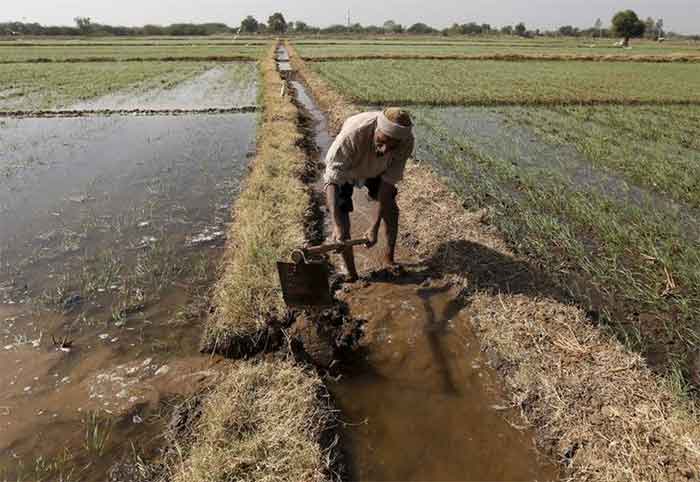
To
Shri G C Murmu
Comptroller & Auditor General of India (CAG)
Dear Shri Murmu,
The Ministry of Agriculture had introduced a Centrally Sponsored Scheme (CSS), Pradhan Mantri Fasal Bima Yojana (PMFBY) around 5 years ago for providing comprehensive crop insurance for farmers. Insurance under PMFBY is a precondition for farmers to take crop loans.
From the website of PMFBY and other reports (https://www.downtoearth.org.in/news/governance/private-insurance-companies-benefitted-the-most-from-pm-fasal-bima-yojana-report-78445), the following important issues of public concern arise:
- The total premium paid under PMFBY by the Centre, the States and the farmers to insurance companies during the last 5 years was Rs 1,26,521 Crores, whereas the insurance companies in turn paid only Rs 87,320 Crores to the farmers towards settlement of claims. In other words, the insurance companies have benefited from PMFBS by Rs 39,201 Crores
- Over the last 5 years, as a result of procedural hurdles in settlement of claims, the coverage of the scheme has declined. For example, over the 5-year time span, the number of farmers covered has come down by 29% during Kharif and 33% during Rabi.
- The insurance companies paid only Rs 87,320 Crores to the farmers against the latter’s claims totalling Rs 92,954 Crores. Many farmers, though covered under the scheme, would not have filed their claims.
- 90% of the CPSE insurance companies have settled most claims, often incurring losses, whereas it is the private insurance companies that have fallen short of settling claims, profiting from the scheme by 60-70%.
- For example, Bharti AXA profited to the extent of 72%, Reliance 59% and Future 61%.
- In some States such as Maharashtra, private insurance companies received substantial premium amounts from the Centre, the States and the farmers but displayed reluctance to settle farmers’ claims, sometimes leading to law & order problems (https://economictimes.indiatimes.com/news/economy/agriculture/reliance-general-insurances-refusal-to-pay-crop-claims-can-become-a-law-order-issue-maharashtra-tells-centre/articleshow/87750828.cms?from=mdr)
In other words, the net effect of the scheme is to allow private businesses to profiteer at the cost of the public exchequer. The fact that the scheme has not been found to be beneficial to the farming community is corroborated by its low coverage and the steep decline in coverage over the last five years. This is despite the fact that crop insurance is compulsory for a farmer to be eligible for crop loans. On the other hand, it has resulted in a significant proportion of public funds getting diverted to the coffers of a few business houses.
PMFBY is a Centrally Sponsored Scheme (CSS) taken up by the Centre under Article 282 of the Constitution, which results in inter-State allocations, not in accordance with the rule-based pattern recommended from time to time by the successive Finance Commissions, keeping in view the States’ respective needs, inter se equity considerations and relative indices of performance, Successive Finance Commissions have suggested that a larger proportion of the Centre’s revenue receipts should go to the States so as to correct the existing revenue-liability asymmetry between the Centre and the States and that inter-State allocations should be consistent with the pattern recommended by the Finance Commissions from time to time.
Over the years, especially during the last few years, there has been a proliferation of the CSSs, running counter to the idea of cooperative federalism. As a result, there has been a progressive reduction in the revenue receipts allocable to the States as per the rule-based pattern recommended by the successive Finance Commissions.
Moreover, CSSs such as PMFBY are often out-of-tune with the States’ own development priorities. Also, since they have the effect of committing the States to allocate a matching share of funds to be eligible for taking advantage of each scheme, they also tend to distort the States’ budgetary priorities.
In view of these considerations, especially since PMFBY has evidently had the effect of diverting public funds for allowing private businesses to profiteer, it is imperative that the CAG conducts a performance audit of the scheme and places its considered findings before the Parliament for a discussion.
One important issue that arises from this is that schemes such PMFBS involving public funds should be entrusted exclusively to CPSEs, not private entities, as utilisation of public funds should be for upholding the public interest, not for adding to the profitability of private companies.
I therefore request the CAG to conduct a comprehensive audit of PMFBY at the earliest.
Regards,
Yours sincerely,
E A S Sarma
Former Secretary to Government of India
Visakhapatnam
















































